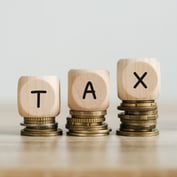Iceland has come a long way from its nadir, when its three major privately owned banks defaulted on $85 billion in 2008. Thanks to a number of factors, which included tight reins on its currency and steps to protect domestic depositors—an action that somewhat shielded its domestic economy—Iceland has fought its way back to emerge from the crisis, if not stronger, certainly viable. While it still struggles with a number of lingering issues, its economy has grown faster than those of many European countries trying to cope with their own debt crisis.
Most recently, favorable news came in the form of a decision from the European Free Trade Association (EFTA) that the country is not liable for damages in refusing to cover Icebank depositors in the U.K. and the Netherlands during the crisis. The EFTA Surveillance Authority had claimed Iceland violated European Economic Area law in refusing to make good on the deposits, totaling some $5.4 billion in Icesave accounts held by 350,000 British and Dutch citizens, but the EFTA Court in Luxembourg denied the claims, clearing the way for continued recovery.
According to the court’s statement, the laws that govern Iceland’s membership in the European Economic Area failed to “envisage” a “systemic crisis of the magnitude experienced in Iceland.” It added, “How to proceed in a case where the guarantee scheme was unable to cope with its payment obligations remained largely unanswered by the directive.”
Had the verdict gone the other way, the penalty could have been as high as 20% of Iceland’s entire economic output, with the two countries having the right to pursue damages of up to 335 billion kronur ($2.6 billion), as estimated by the International Monetary Fund (IMF). Iceland has already repaid 90% of the money that Britain and the Netherlands had paid out in minimum deposit guarantees to its Icebank depositors, and says that it expects to pay the Icesave claims in full.
Foreign Minister Ossur Skarphedinsson was quoted in reports saying of the decision that it “completely vindicated” Iceland, and added, “Within a few years we will have finished paying all our obligations and probably 15% more than that. I don’t remember any bank in the world that has failed and still delivered results of this kind. So Icelanders will honor their obligations, and that’s what matters most.”
That brought more good news. Based on the EFTA decision, Fitch Ratings lifted Iceland’s long-term foreign currency issuer default rating (IDR) to BBB from BBB-, and Moody’s Investors Service also acted, raising the outlook on Iceland’s Baa3 grade to stable.








 February 28, 2013 at 09:55 PM
February 28, 2013 at 09:55 PM










